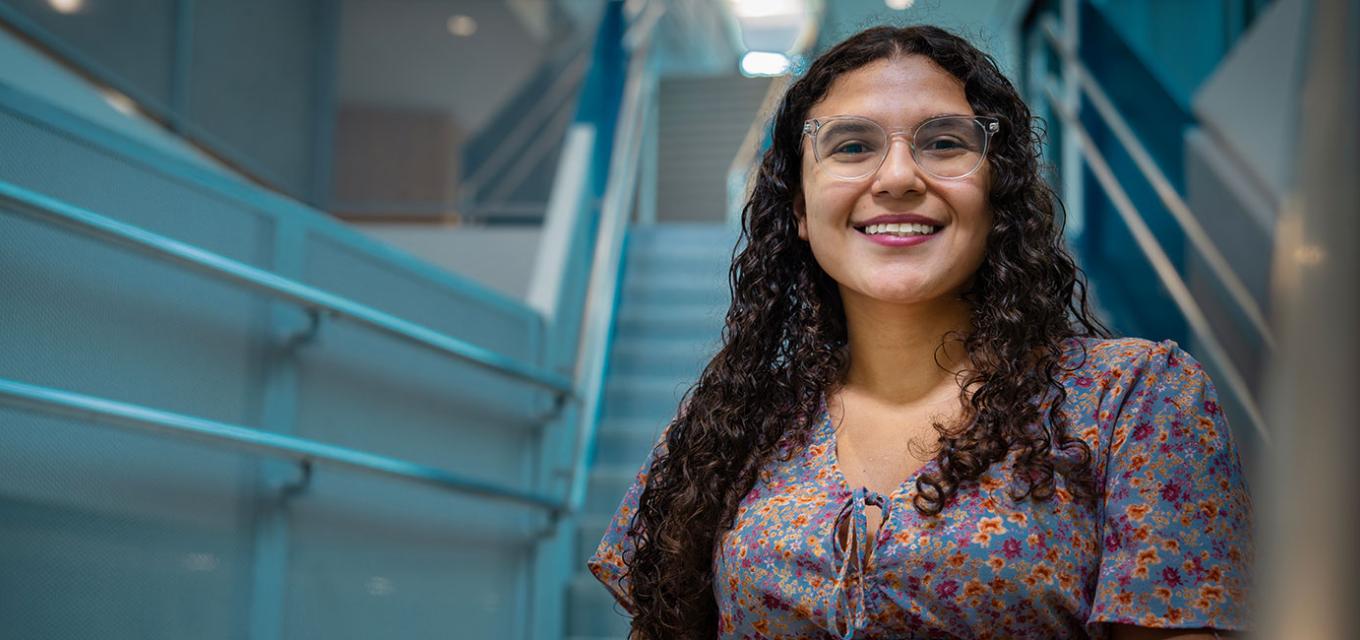News

Community-engaged prevention and intervention
ICD doctoral student’s dedication to enhancing youth resilience and well-being among Latine immigrant youth.
I felt my heart race as I read through the English vocabulary describing posttraumatic stress and related symptoms in the Trauma Symptom Checklist for Children. I was unsure if my translation would accurately capture my client’s posttraumatic stress symptoms, as some of the questions did not seem culturally relevant to them. However, despite the imperfections in interpretation, my client’s mother’s eyes sparkled with hope and relief. I served as an in the moment cultural insider to support the unique needs of Spanish-speaking clients. My professional and personal experiences have motivated me to pursue a PhD in developmental psychopathology and clinical science to explore the intersection between mental health equity, well-being, and service access among immigrant and refugee families.
Community mentorship to advocate for change
I am a first-generation doctoral student collaborating with three mentors from UMN’s School of Social Work and Institute of Child Development: Drs. Saida Abdi, Mimi Choy-Brown, and Ann Masten. Together, we are dedicated to enhancing the resilience and well-being of immigrant youth by implementing Trauma Systems Therapy for Refugees (TST-R) within Minneapolis Public Schools (MPS). Under their guidance, I am gaining insights into merging resilience and implementation science concepts. This knowledge aids in tailoring program components, assessing student program satisfaction, and evaluating the overall impact of the initiative. Moreover, I serve not only as a cultural broker within the research sphere, but also actively engage with the community. In the CIRCLE project, community engagement and the role of cultural brokers are crucial. Our team comprises cultural brokers from Afghan, Somali, Oromo, and Latine communities. These individuals connect families to resources, operate in diverse school settings, and establish a welcoming environment for immigrant and refugee MPS children. It is a privilege that our community partners and stakeholders have placed their trust in the CIRCLE project team, our goals, and our initiatives. Their unwavering support has been instrumental in shaping who we are today.
Circle project's school-based skills group

Our 12-week skills group follows a structured framework with the flexibility to adapt sessions as needed. Each week, along with a co-facilitator, I prepare the classroom with snacks, games, and arts and crafts. Our CIRCLE students, ranging from kindergarten to 5th grade, often express excitement and happiness about being part of a space where they can connect with others who share their cultural perspective. We customize activities based on the group dynamic, ensuring engagement among students. For instance, we incorporated soccer as a warm-up game in a group of 5th grade boys who were passionate about soccer and preferred high-energy activities. By participating in soccer, my co-facilitator and I developed a bond of trust with our students, further deepening our appreciation for the work we do and the children. Following the warm-up, we take breaks for snack time and engage in discussions on themes like teamwork, conflict resolution, and effective communication. Although sometimes tough for our students, these conversations are crucial to develop skills to help them navigate the complex U.S. education system. At the end of each session, our students participate in breathing exercises to emphasize the importance of being present in the moment. Many of them are introduced to these emotion regulation strategies for the first time. While individual preferences vary, it is amazing to see them demonstrate willingness to try something new. According to our students’ feedback, activities like bubble breaths and mindful eating have become some of their favorites!
Celebration day, my personal favorite session, marks the culmination of the 12-week curriculum, where we congratulate students’ achievement with their favorite snacks and games. It is an occasion for students to share their insights, showcasing their growth, and some even express interest in participating in future CIRCLE groups. Collaborating with Latine cultural brokers and students has enriched our approach, shaping our services and curriculum to ensure cultural responsiveness.
Community engagement, as can be seen in the CIRCLE project, is essential in developing and sharing culturally congruent prevention and treatment programs for underrepresented communities. As a member of the Latine community, this collective approach resonates with the values ingrained in many immigrant families—the belief in achieving more through unified effort rather than individual work. The Latine principle of respeto (respect) also shines through as our MPS participants and community partners continue to respect and believe in the CIRCLE project. I feel fortunate and grateful for mentors like Drs. Abdi, Choy-Brown, and Masten, who comprehend my bicultural perspective of neither from here nor from there. They have played a pivotal role in supporting my overarching goals of improving mental health equity, well-being, and access to services for Latine immigrant children and families.
-JASMINE BANEGAS